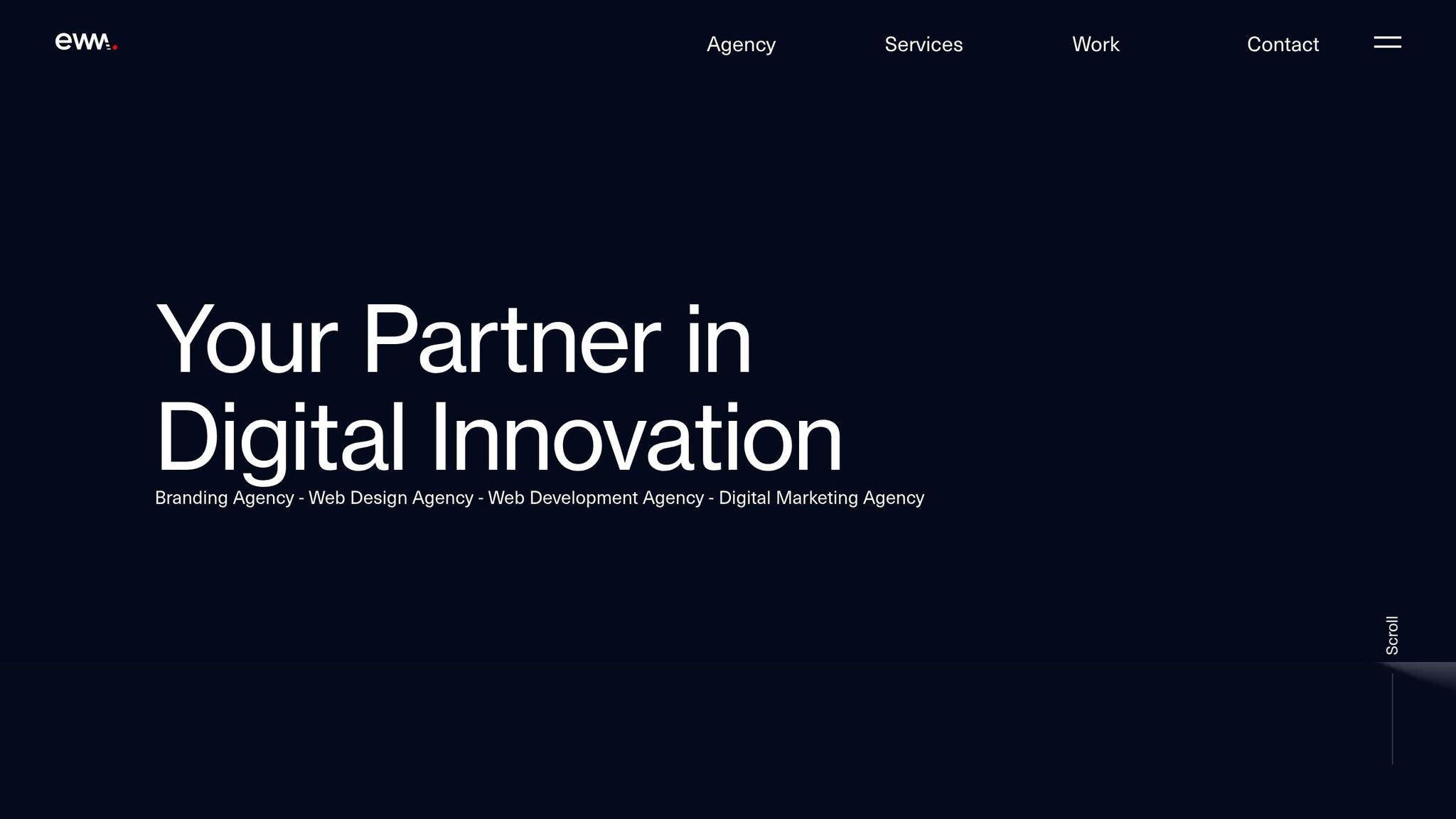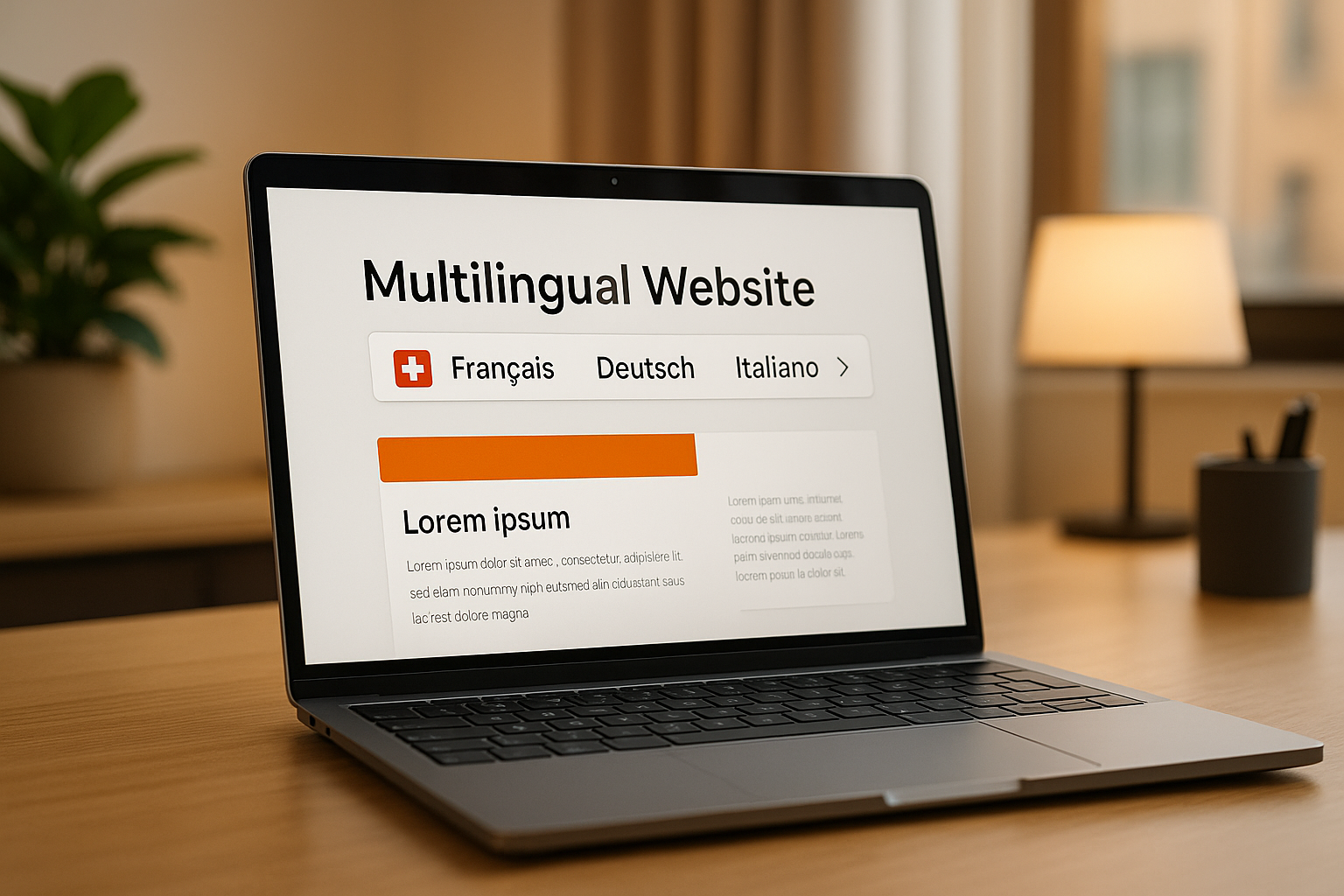Multilingual SEO: hreflang for the Swiss market
Multilingual SEO: hreflang for the Swiss market
are essential to optimize your website in Switzerland, a multilingual country with diverse searches based on regions. They allow Google to offer the linguistic version adapted to each user, depending on their location and preferences. For example, they differentiate Swiss French (fr-CH) from Swiss English (en-CH), thus avoiding errors such as duplicated content or incorrect geographical targeting.
Why hreflang tags are important for Switzerland:
- Linguistic diversity: French, German, Italian, and English coexist, with specific searches based on languages and regions.
- Improved user experience: Users see, increasing their satisfaction.
- Avoid: Reduces the risks of duplicated content and keyword cannibalization.
Steps to configure hreflang:
- , HTTP headers, or XML sitemaps.
- Use complete codes like
fr-CHoren-CHto precisely target Swiss users. - Follow best practices: absolute URLs, reciprocal links, compatibility with canonical tags, and adding an
x-defaulttag.
Tools to check hreflang:
- Google Search Console: Monitoring hreflang errors.
- Screaming Frog SEO Spider: Analyzing inconsistencies.
- Ahrefs Site Audit: Detecting issues on complex sites.
In Switzerland, a well-executed multilingual SEO strategy, combined with appropriate localization (such as the correct use of CHF and date formats), can transform your online visibility. Hreflang errors are common, but by avoiding them, you maximize your chances of success.
How to add, test and validate Hreflang Tags: An Hreflang Implementation Guide for Success
How to implement hreflang tags for Swiss websites
Implementing hreflang tags for a site targeting the Swiss market requires a rigorous approach. Here are the essential steps to ensure correct configuration.
Configuration of hreflang tags
There are three main methods to integrate hreflang tags: in HTML, via HTTP headers, or in XML sitemaps.
For a Swiss site targeting French-speaking and English-speaking users, direct integration into HTML is often preferred. In the <head> section of each page, insert the appropriate tags. For example:
- For a page in Swiss French:
<link rel="alternate" hreflang="fr-CH" href="https://yoursite.ch/fr/page-example" /> - For a page in Swiss English:
<link rel="alternate" hreflang="en-CH" href="https://yoursite.ch/en/example-page" />
Using language codes like fr-CH and en-CH is crucial to indicate to search engines that the content is specifically targeting Swiss users, avoiding any confusion with other regional variants.
For sites with a more complex structure, using an XML sitemap can simplify management. Each URL must be associated with its alternative language versions through <xhtml:link> tags.
Technical requirements and best practices
For effective hreflang implementation, follow these fundamental rules:
- Always use absolute URLs. Each hreflang tag must include the full URL, with the HTTPS protocol and domain name. Relative URLs are not accepted.
- Ensure link reciprocity. If a French page points to its English version via hreflang, the English page must also point back to the French version. This bidirectional relationship is essential to validate your language declarations with search engines.
- Avoid conflicts with canonical tags. A common mistake is configuring a canonical tag pointing to a different language version than defined by hreflang. For example, a page in
fr-CHshould not have a canonical tag pointing to a page inen-CH. - Add an x-default tag. This redirects users to a homepage or language selection page if their language preference does not match any available version:
<link rel="alternate" hreflang="x-default" href="https://yoursite.ch/" />
Finally, ensure . Even though textual content varies, the structure, features, and purpose of pages should remain consistent. For example, a product page in French should match the same product page in English, not a category or another section.
Test and validation tools
To ensure your hreflang tags work correctly, use specialized tools to detect potential errors:
- : This tool allows you to monitor your hreflang tags in the "Coverage" section. You can identify errors and check how Google interprets your configurations.
- hreflang Tags Generator & Testing Tool: Ideal for checking tag syntax and reciprocity.
- : This tool analyzes your entire site to identify hreflang errors, such as missing URLs or inconsistencies.
- : Particularly useful for large sites, it automatically detects hreflang issues and offers solutions.
Regularly test your hreflang tags, especially after updates or technical changes. A well-maintained implementation ensures your content meets the expectations of Swiss users and search engines.
Common errors and how to avoid them
Even when well managed, hreflang tags can sometimes be misconfigured, which can harm a site's multilingual visibility. These technical errors can have significant repercussions on SEO and user experience.
Common hreflang errors
- Incomplete codes: Using only
froreninstead of complete codes likefr-CHoren-CHcan lead to incorrect geographical targeting. - Lack of reciprocity: Hreflang tags must be reciprocal. For example, if a French page points to its English version, the English page must also link back to the French version. Otherwise, Google may ignore these tags.
- Conflict with canonical tags: Inconsistency between canonical and hreflang tags can disrupt search engines. For example, if a Swiss French page has a canonical tag pointing to an English version, it sends conflicting signals.
- Incorrect URLs: URLs in hreflang tags must be absolute, not relative. This ensures each link is correctly interpreted.
- Automatic translations: Simple automatic translation can generate duplicated content, which harms SEO.
These errors highlight the importance of rigorous monitoring to ensure the effectiveness of hreflang tags.
Best practices for Swiss bilingual sites
To avoid these errors and optimize your hreflang configuration, here are some recommendations:
- Continuous validation: Regularly check your hreflang tags, ideally every month, especially after technical updates or adding new pages.
- Content adapted to each language: Don't just translate your pages. Adapt the content based on local references and linguistic habits. For example, a Swiss French page should include examples and references specific to French-speaking Switzerland.
- Automated monitoring: Set up a system to automatically detect hreflang errors. can be configured to alert you of any issues.
- URL consistency: Ensure each page has an equivalent in all declared languages. A page without a match can lead to errors in your hreflang configuration.
- Clear URL naming conventions: Use prefixes like
/fr-ch/or/en-ch/to clearly reflect the linguistic and geographical structure of your site. Avoid generic prefixes like/fr/or/en/, which lack precision. - Internal documentation: Create a detailed guide for your hreflang strategy. Such documentation allows your technical team to maintain consistency and avoid errors during updates.
By following these practices, you can not only improve your site's SEO but also offer an optimal user experience for the different linguistic communities in Switzerland.
sbb-itb-454261f
Localization requirements for Swiss French
Once your hreflang tags are optimized, it is equally essential to adjust the content to meet the expectations of the Swiss audience. Localization relies on specific standards, particularly regarding the presentation of amounts. Adapting these elements is a crucial step to succeed in your . Here are the formatting rules to follow to establish an authentic local connection.
Formatting standards for Swiss French
Respecting Swiss formatting conventions involves following precise rules, especially for monetary values.
- Currency: The ISO 4217 code "CHF" should precede the amount (e.g., CHF 880.00)[1][4]. You can also use the abbreviation "Fr." depending on the context[1][4].
- Separators: Use a period (.) for decimals[2][3][4][5] and an apostrophe (') to separate thousands[1][4].
These seemingly minor details enhance credibility and demonstrate a particular attention to local expectations.
Multilingual SEO services of

After exploring the importance of hreflang tags, let's see how integrates them into its SEO services. Since 2011, this agency based in Geneva, with offices in Zurich, Paris, London, and Nice, has established itself as a key player in multilingual SEO in Switzerland. With expertise in bilingual digital platforms, EWM SA helps businesses effectively reach French-speaking and English-speaking audiences.
Bilingual SEO approach of EWM SA
EWM SA offers a comprehensive SEO strategy that considers the linguistic and cultural specificities of Switzerland. The agency develops customized solutions leveraging technologies like Symfony and WordPress, while adhering to local standards.
EWM SA's approach is based on several fundamental elements. Among them, the rigorous implementation of hreflang tags, with particular attention to language codes like fr-CH and en-CH, as well as the structuring of multilingual URLs. The agency also emphasizes semantic optimization, adapting content to the specific searches of each audience.
This tailored method ensures harmonious user experiences, considering the unique expectations of each linguistic group. Whether for local SMEs, international NGOs, or luxury brands, EWM SA adapts its solutions to meet the diverse needs of its clients. The result: measurable performance and tangible returns.
Client benefits and results
Businesses collaborating with EWM SA benefit from enhanced visibility on Google, thanks to bilingual French-English optimization. This strategy attracts qualified traffic and improves conversion rates by offering content perfectly tailored to each audience.
The agency, with its experience across various sectors, adjusts its SEO solutions according to the specific needs of each business. Whether in finance, real estate, technology, or luxury, EWM SA provides targeted strategic advice and impeccable technical execution.
| Benefit | Direct Impact |
|---|---|
| Bilingual SEO | Increased visibility and qualified traffic |
| Custom development | Performant and scalable platforms |
EWM SA's reputation, recognized by several awards, enhances the credibility of its clients while offering them a competitive advantage in the Swiss market. Additionally, the agency ensures continuous performance monitoring, with detailed reports to adjust and optimize strategies along the way.
Summary and Next Steps
Key points to remember
Effective implementation of hreflang tags is a key element for Swiss businesses seeking to strengthen their online presence. In a country where multiple languages coexist, these tags allow precise targeting of French-speaking, German-speaking, and English-speaking audiences, while considering local specificities.
However, localization is not just about translation. It involves adapting content to Swiss standards, such as the use of the Swiss franc (CHF), date format (dd.mm.yyyy), or the specificities of Swiss French. This level of detail can transform a standard website into a platform truly optimized for the Swiss market.
